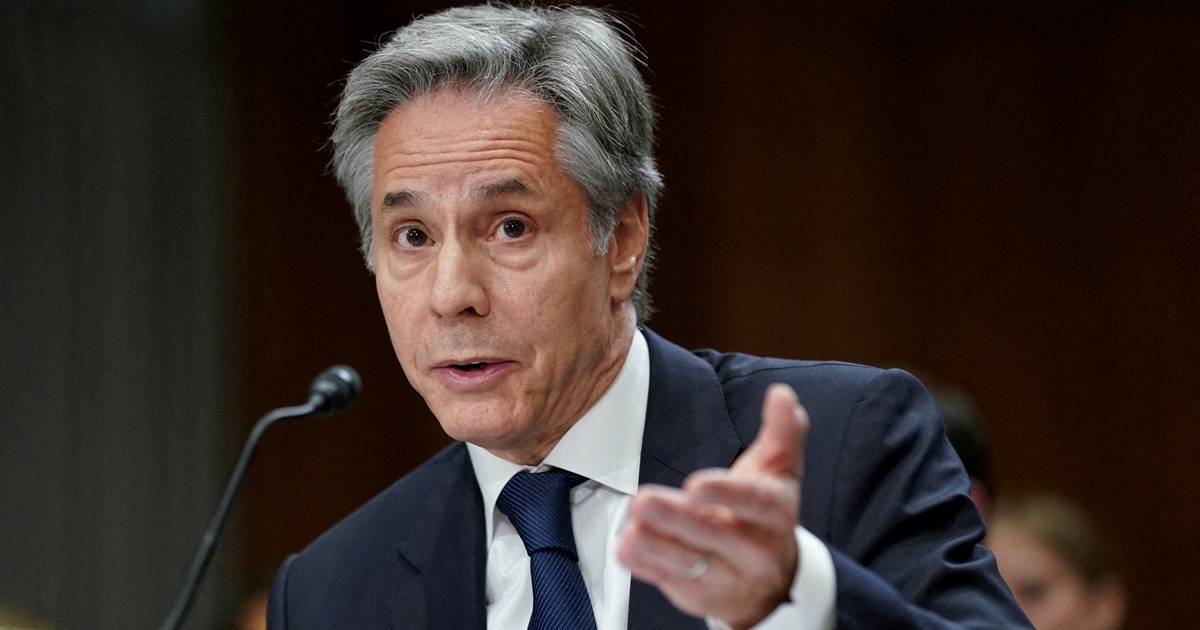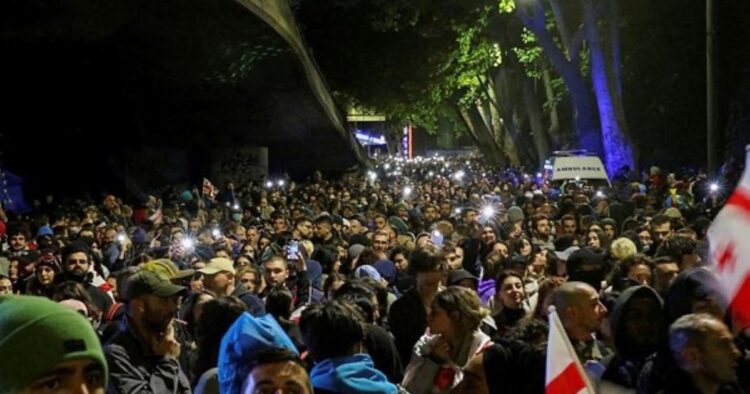Georgia’s ruling party has accused the United States of employing tactics of “threats and blackmail” following Washington’s announcement of new visa restrictions over a controversial draft law concerning “foreign agents”.
This move has further intensified the ongoing political crisis in the South Caucasus nation and put its longstanding ties with the US in jeopardy.
The draft law in question proposes that organizations receiving more than 20% of their funding from foreign sources register as “foreign agents”. This legislation has sparked significant unrest in Georgia, with large-scale protests persisting for over a month.
US Secretary of State Antony Blinken criticized the draft law, stating that it would suppress freedoms of association and expression, particularly impeding the work of independent media organizations.

Consequently, the US has initiated a review of its cooperation with Georgia and imposed visa restrictions on individuals deemed responsible for undermining democracy in the nation.
Georgia’s ruling Georgian Dream party swiftly condemned the US actions, labeling them as an attempt to curtail the nation’s independence and sovereignty. Party officials reiterated their commitment to prioritizing Georgia’s interests over external pressure.
Mamuka Mdinaradze, head of the governing bloc’s parliamentary faction, dismissed the US move as “comical” and emphasized the importance of safeguarding Georgia’s independence.
The international community, including Germany, France, and the European Union, has expressed deep concern over Georgia’s trajectory, urging Tbilisi to withdraw the controversial bill. Critics both within and outside Georgia liken the legislation to authoritarian measures employed by Russia to suppress dissent.
However, a coalition of Georgian opposition parties has welcomed the US sanctions, viewing them as a protective measure for the nation’s constitution, sovereignty, and aspirations for European and Euro-Atlantic integration.
Despite facing significant domestic opposition and international scrutiny, Georgia’s ruling party remains resolute in its determination to push through the draft law. The bill, which recently passed through parliament and faces a presidential veto, signifies a critical juncture in Georgia’s democratic development.
Furthermore, the escalating dispute with the US threatens to jeopardize crucial aid packages and economic support that Georgia has relied upon for decades.
As tensions between Georgia and the US escalate over the contentious draft law, the future of their bilateral relations hangs in the balance. With both sides standing firm in their respective positions, the political landscape in Georgia remains tumultuous, posing challenges to its democratic aspirations and international partnerships.

















Comments